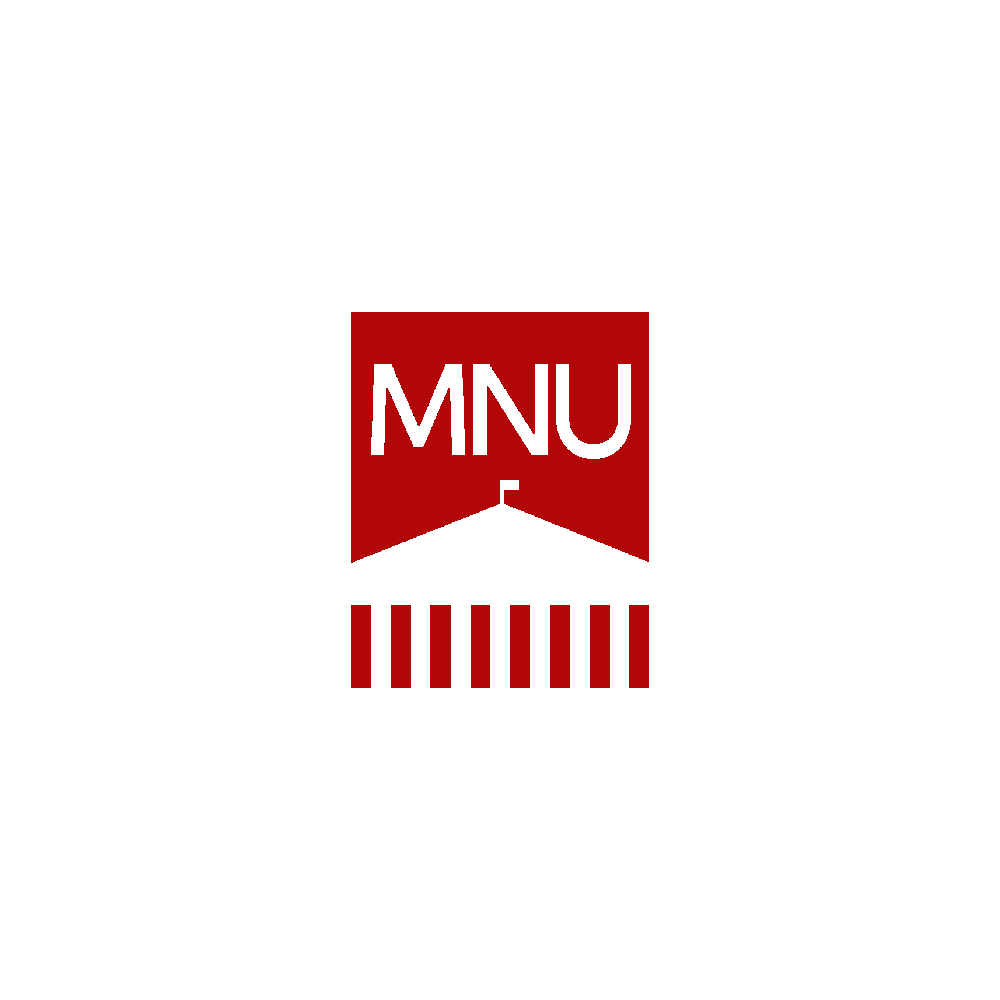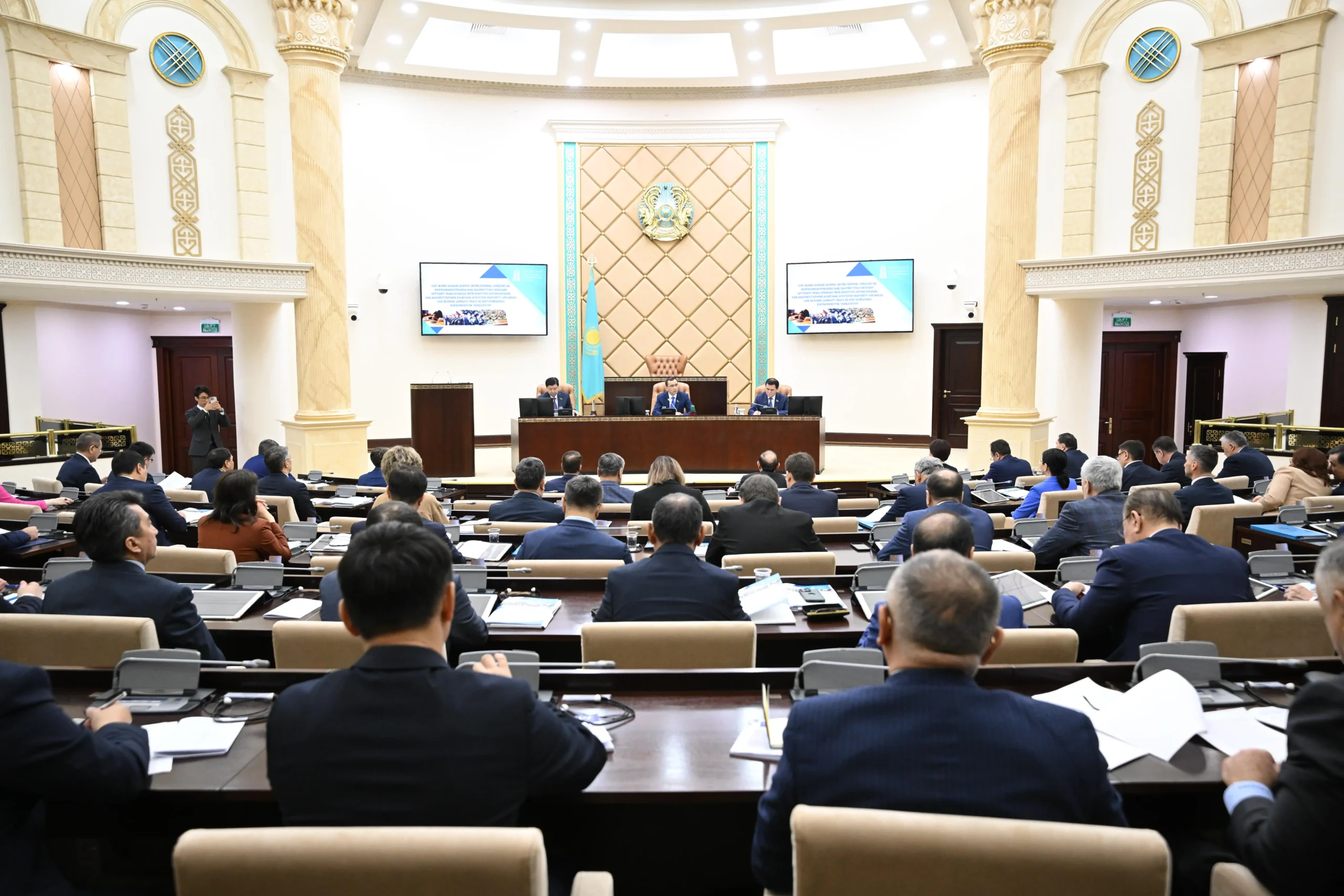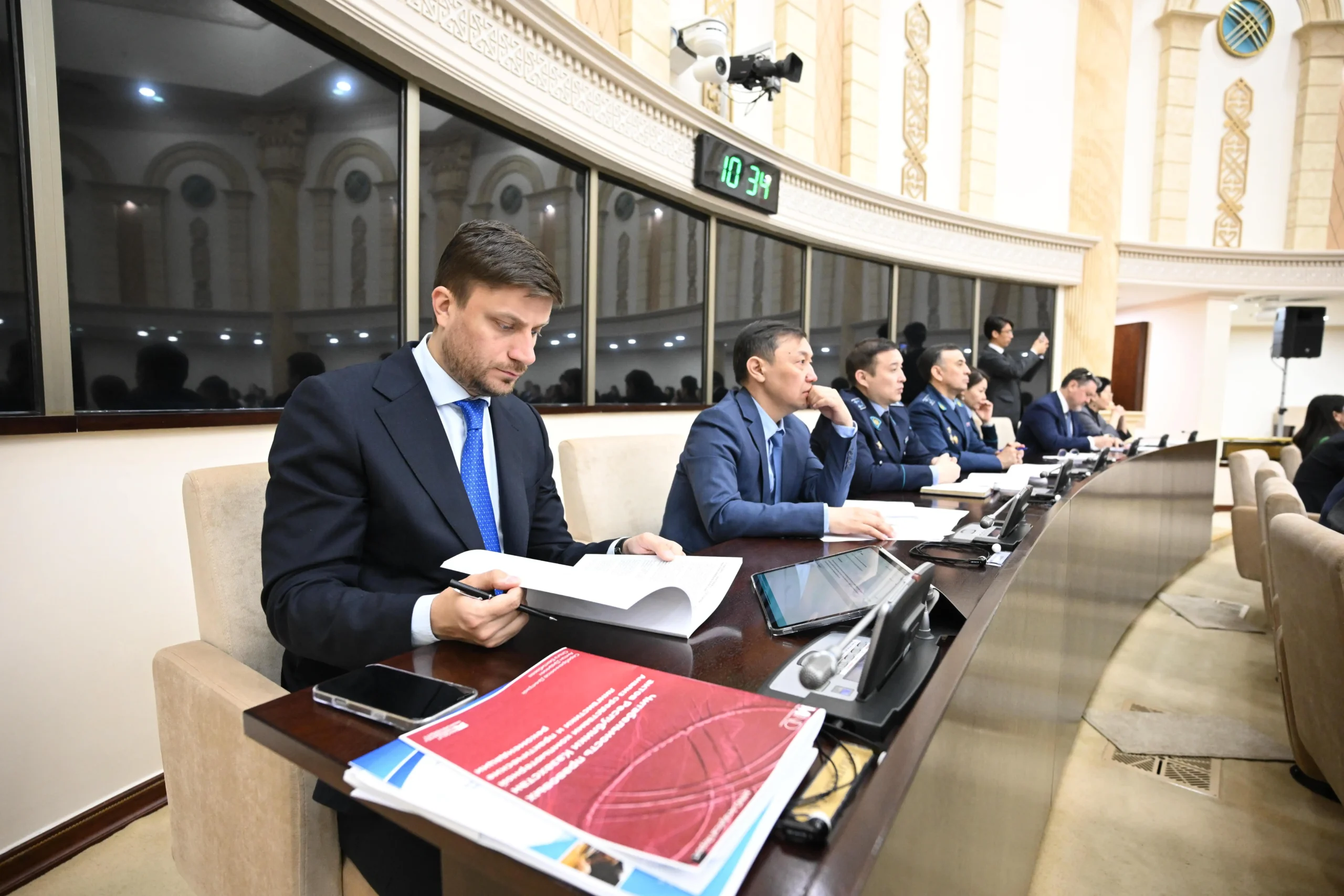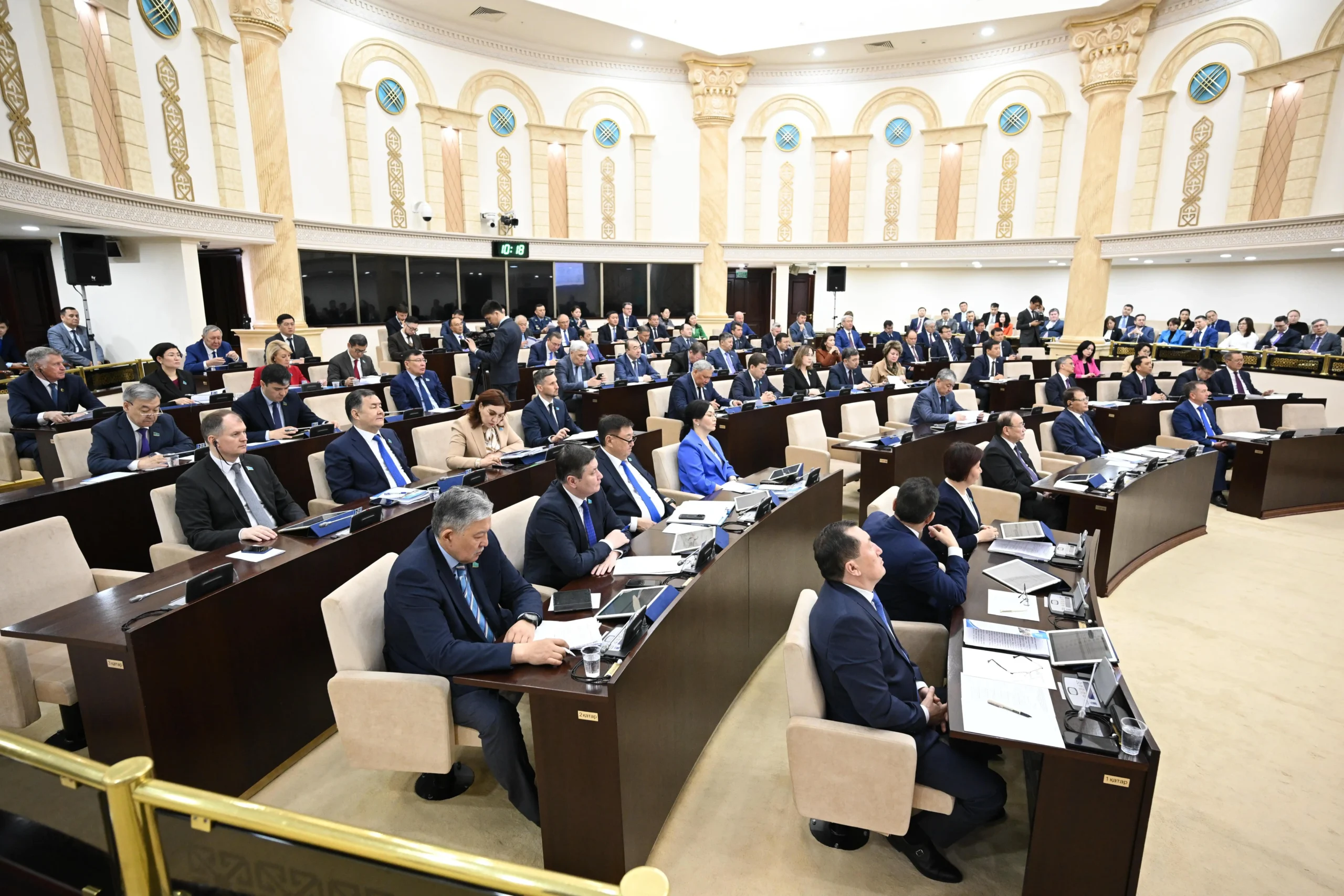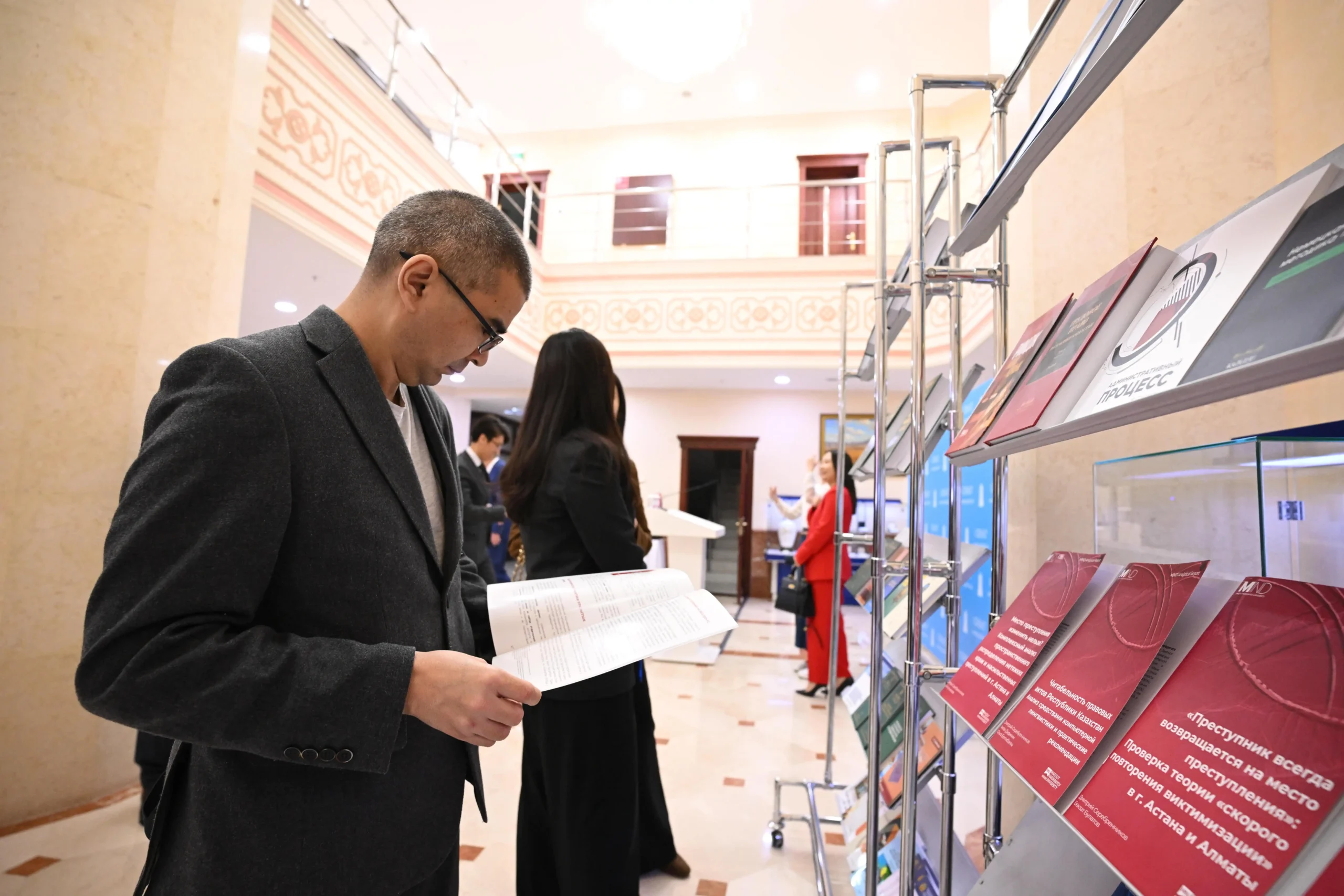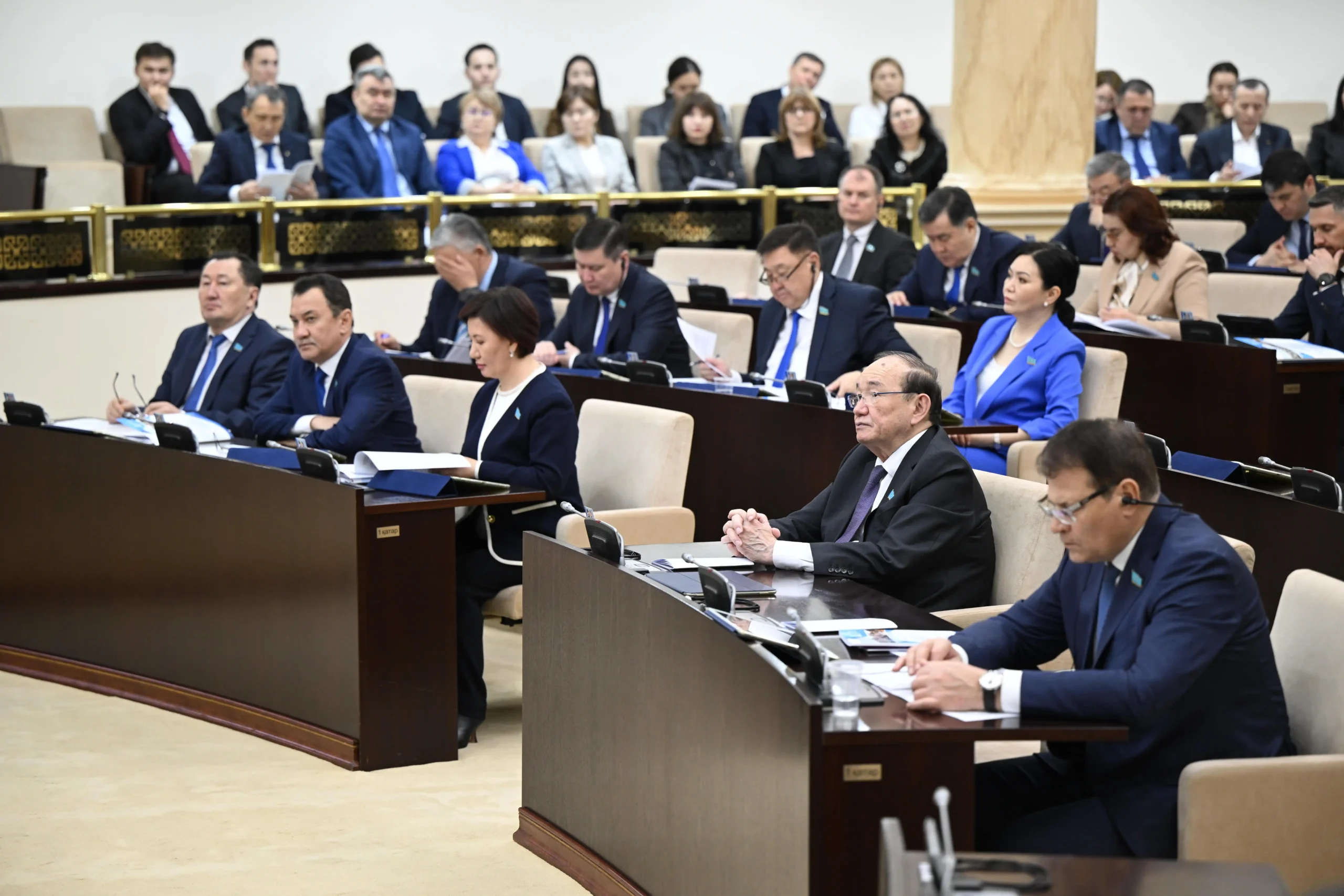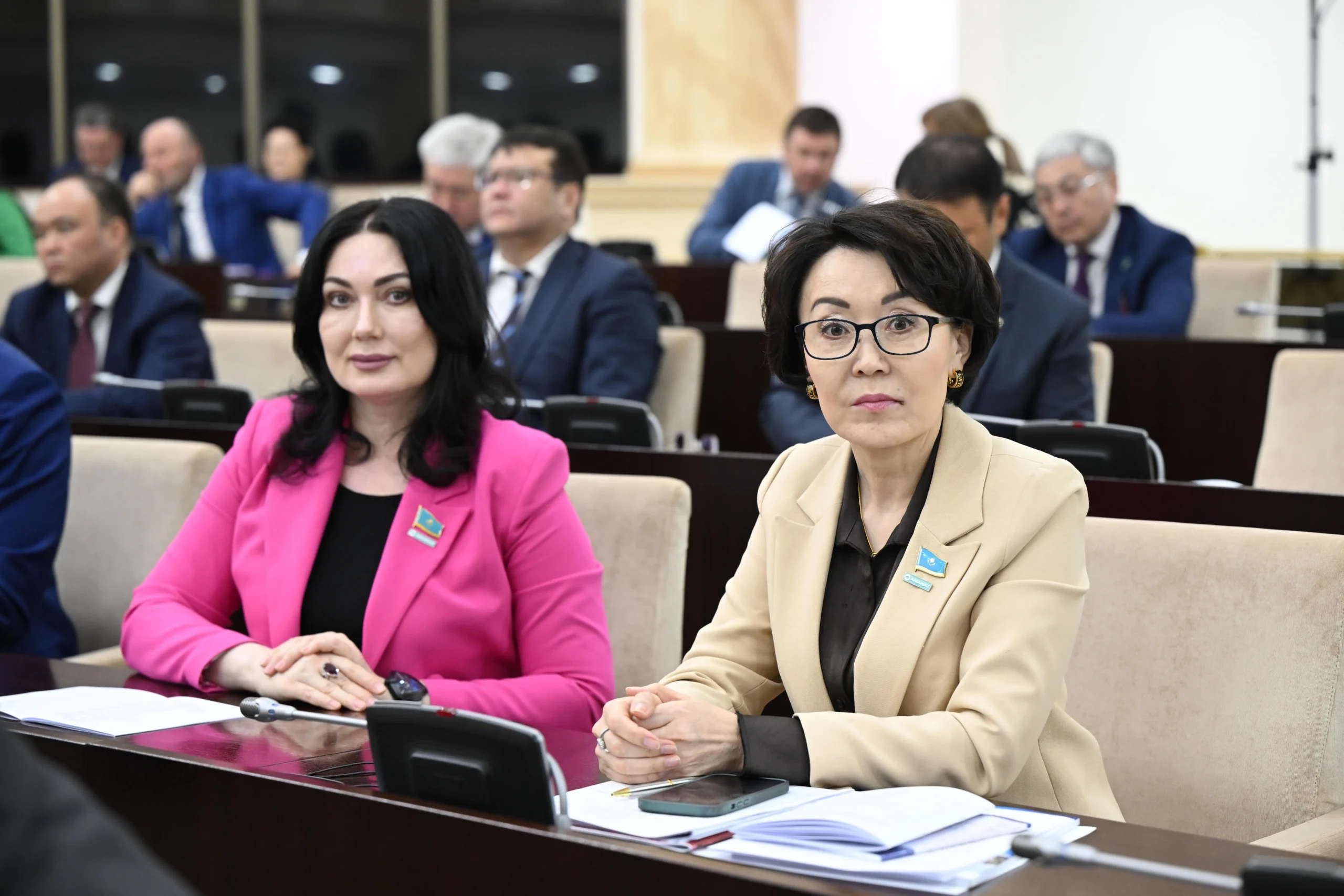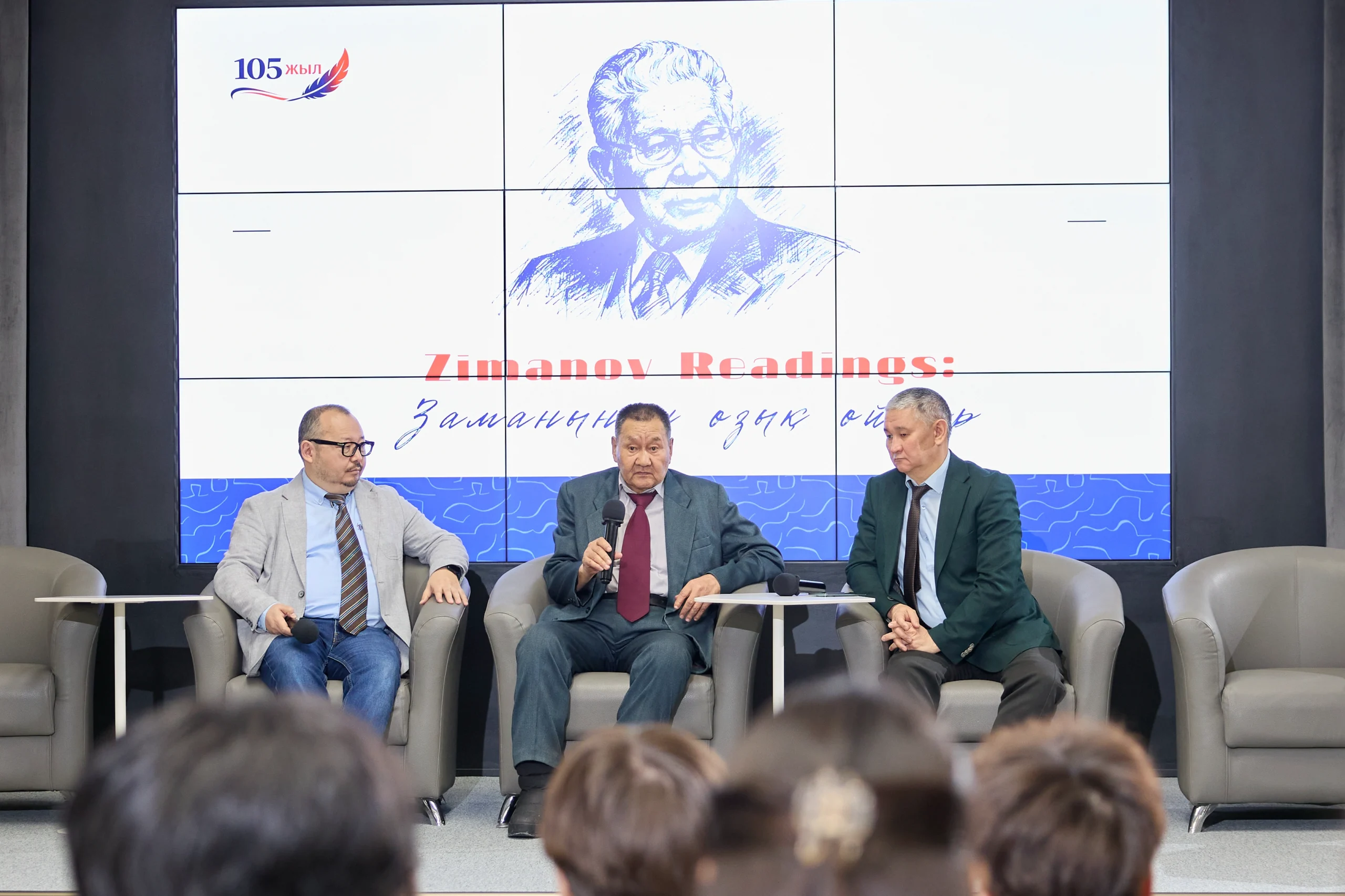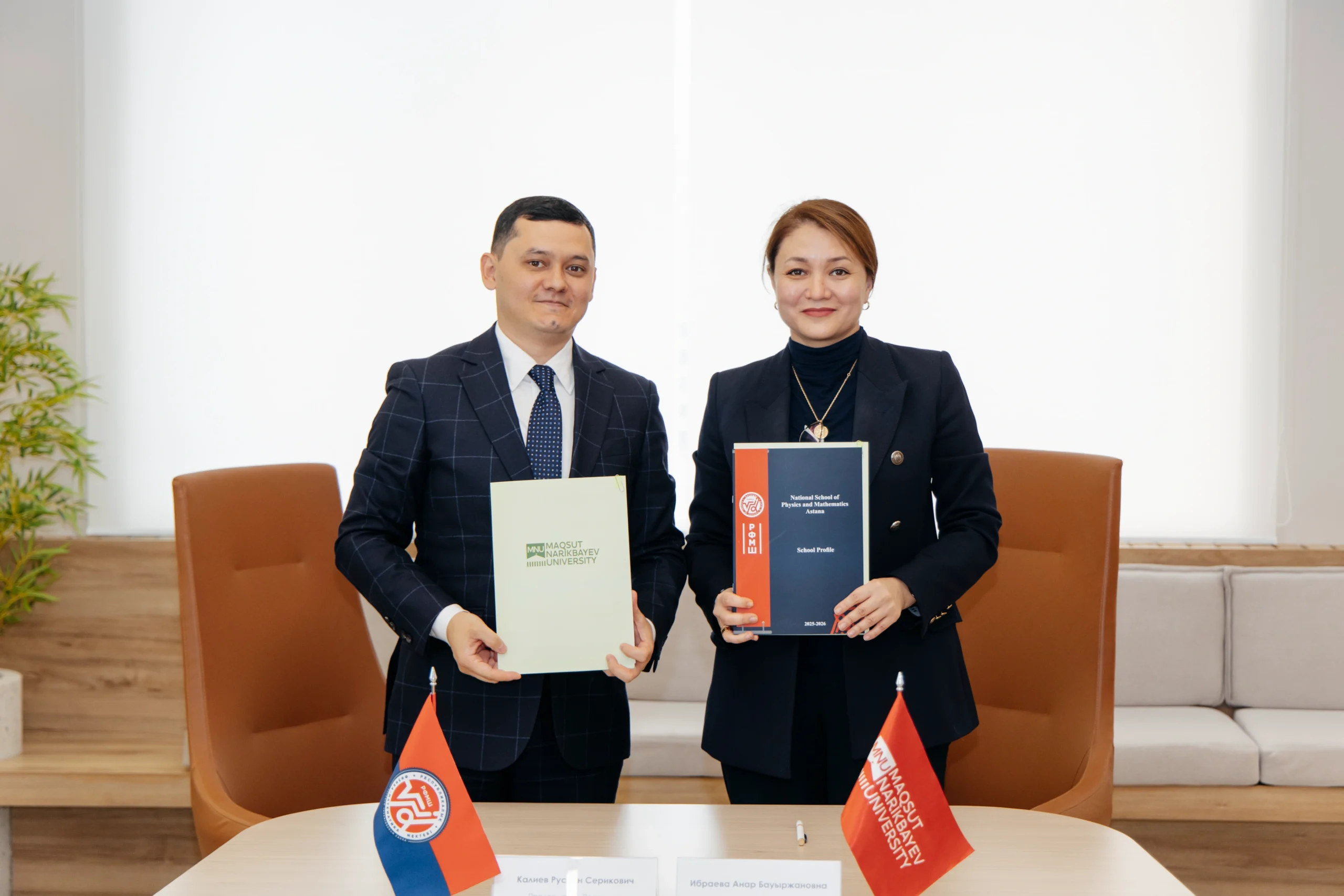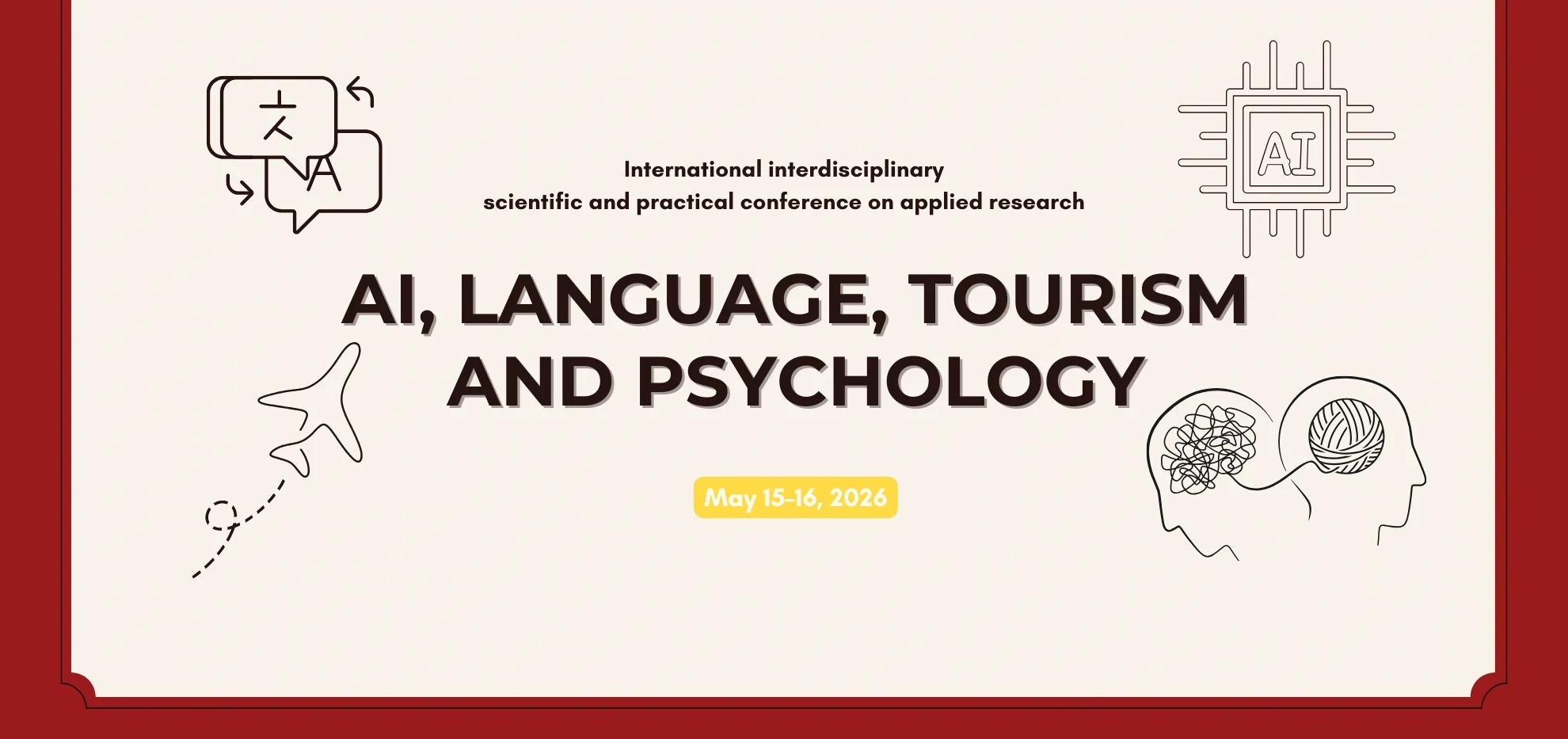The Senate has recommended drawing on the experience of Maqsut Narikbayev University (MNU) to support the advancement of legal education in Kazakhstan. During the Parliament’s Upper Chamber session, various proposals on enhancing the quality of legislative work and strengthening the human resources in the judicial and law enforcement systems were presented.
The parliamentary hearings featured speeches by the Minister of Science and Higher Education, Sayasat Nurbek; the Minister of Justice, Yerlan Sarsembayev; MNU Provost, Sergey Pen; as well as distinguished academics, rectors of the nation’s leading universities, and subject-matter experts. In his opening remarks, Chairman of the Senate of the Republic of Kazakhstan Maulen Ashimbayev highlighted a mismatch between labour market demands and the supply of qualified legal professionals. He emphasised the need for collaborative efforts between government, employers, and educational institutions.
“The rule of law, as President Kassym-Jomart Tokayev consistently underscores, is the foundation of a lawful and just state. However, a strong legal culture is not possible without well-trained legal professionals. Currently, we are facing serious issues in legal education. These include a disconnect between the number of legal graduates and actual labour market needs, and a shortage of qualified lawyers overall. Addressing these issues requires specific, systemic solutions. Introducing innovative practices in legal education is also essential,” Maulen Ashimbayev stated.
The Senate Speaker also underlined the significance of the recent academic and practical conference hosted by MNU. Speaking at the session, Minister of Science and Higher Education Republic of Kazakhstan Sayasat Nurbek noted that legal studies programmes are currently offered at 59 universities nationwide, enrolling approximately 40,000 students. He highlighted recent developments, including the launch of grants for specialised master’s programmes, the drafting of a Conceptual Framework for the Development of Legal Education 2025–2030, and the introduction of external professional accreditation for academic programmes by industry bodies and associations.
“Today, academic programmes are being accredited not only at the ministry level but also by independent organisations and employers, who provide their own assessments and recommendations. We intend to expand the pilot project launched at Maqsut Narikbayev University to other institutions,” said Sayasat Nurbek.
Maqsut Narikbayev University, widely recognised as a leader in legal education in Kazakhstan, continues to play a key role in strengthening the rule of law. Under the auspices of the Academic and Methodological Association in Legal Education and with the support of the Ministry of Science and Higher Education, MNU brought together the majority of law-focused universities for a strategic session. This led to the collaborative development of the Conceptual Framework for the Development of Legal Education for 2025–2030. During the hearing, MNU Provost Sergey Pen also drew attention to another pressing issue.
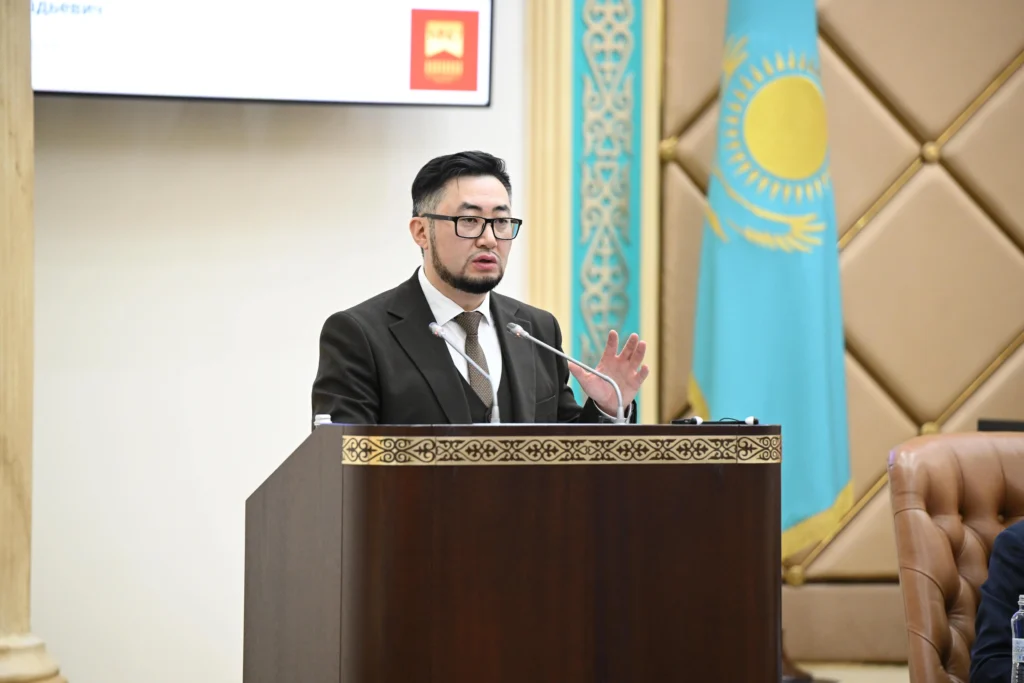
“A major problem lies in the fragmentation of the professional legal community—an issue beyond the direct influence of universities and the higher education system. It cannot be resolved solely through the efforts of the education ministry or academic institutions. The Ministry of Justice attempted to standardise the legal profession years ago, but those efforts have not yet come to completion. Now, the National Bar Association is initiating a new round of reforms, which we fully support. It is crucial to understand that regardless of individuals, rankings, or affiliations, all universities benefit from a unified professional legal market. Such a market would allow for the development of regional representative offices and accreditation systems, and the creation of a unified professional standard—something we have long awaited,” Sergey Pen said.
Sergey Pen also outlined several other challenges facing legal education: a shortage of qualified faculty in the regions, declining interest in the legal profession, and low salaries in the public sector. He noted that regional universities in particular lack the intellectual and material resources needed to compete with better-resourced institutions.
“We are facing a ‘two-speed’ system in legal education, and it must be acknowledged. Some universities outperform the national average due to their resources, reputation, and academic personnel. Others—mainly regional universities—attract students with fewer opportunities and operate in conditions that hinder educational excellence. In this context, a return to standardised national educational models could undermine the progress made by successful institutions that, through academic freedom and innovation, have aligned themselves with labour market needs,” he observed.
MNU Provost proposed introducing an independent mechanism to assess graduate competencies with the involvement of employers and professional associations. He also called for an increase in state-funded places for legal education, including regionally commissioned training tied to graduate quality and mandatory public service placements. He advocated for the development of a national professional standard for the legal profession through broad dialogue within a unified regulatory framework. Additionally, he presented the Senate with MNU’s publication, Kazakh-Russian Legal Dictionary: Errors and Interpretations, and shared insights into the university’s approach to training highly skilled professionals. Deputy Chairman of the Senate, Zhakip Asanov, welcomed MNU’s initiatives to improve legal education.
“Our country has more than three thousand laws and thousands of by-laws, many of which are written in overly complex language. These legal texts must be accessible not only to lawyers but also to the general public. A significant issue is the inconsistent interpretation of legal terms, which undermines the purpose of regulation. To address this, MNU has carried out extensive research. The university assessed the readability of legal texts and developed specific methodological recommendations. We must now ensure these are applied in practice,” Zhakip Asanov stated.
He expressed gratitude to MNU for its efforts and invited the participants of the hearing to test the readability of legal documents using the university’s methodology. As an example, he proposed rewriting an existing law in “plain language” following MNU’s guidelines.
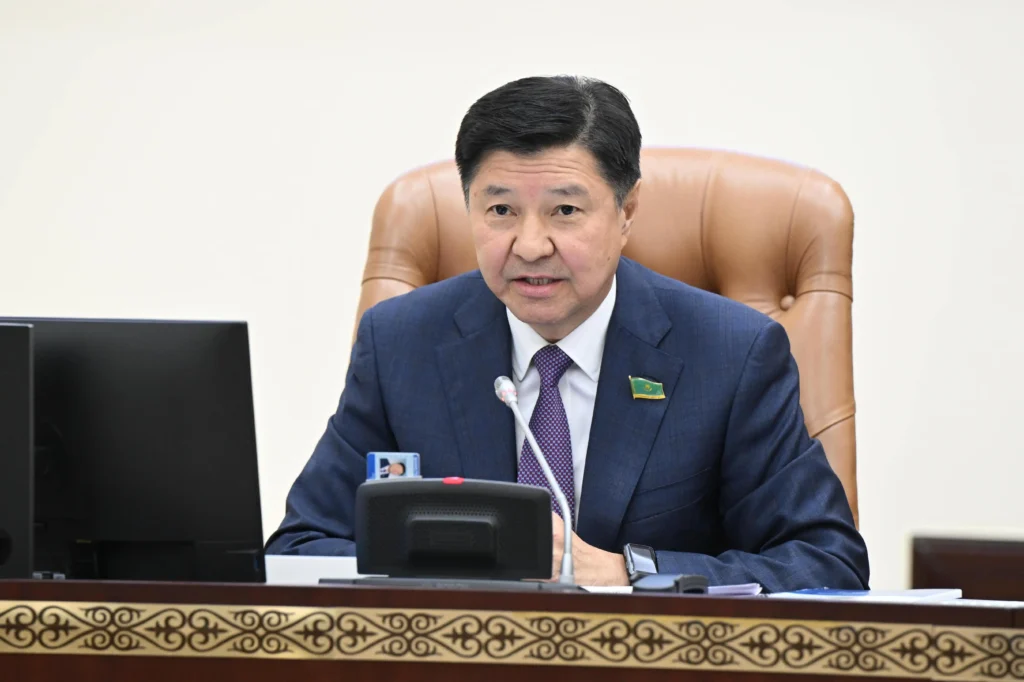
“If this approach proves effective, it could transform the way laws are written. It would also have a direct impact on law enforcement and legal compliance. Another challenge lies in terminology. A single word may have several meanings, leading to varied interpretations. To bring consistency to legal terminology, MNU has developed the Kazakh-Russian Legal Dictionary,” said Zhakip Asanov.
The proposals made during the hearings will be incorporated into formal recommendations and submitted to the Government of the Republic of Kazakhstan.
